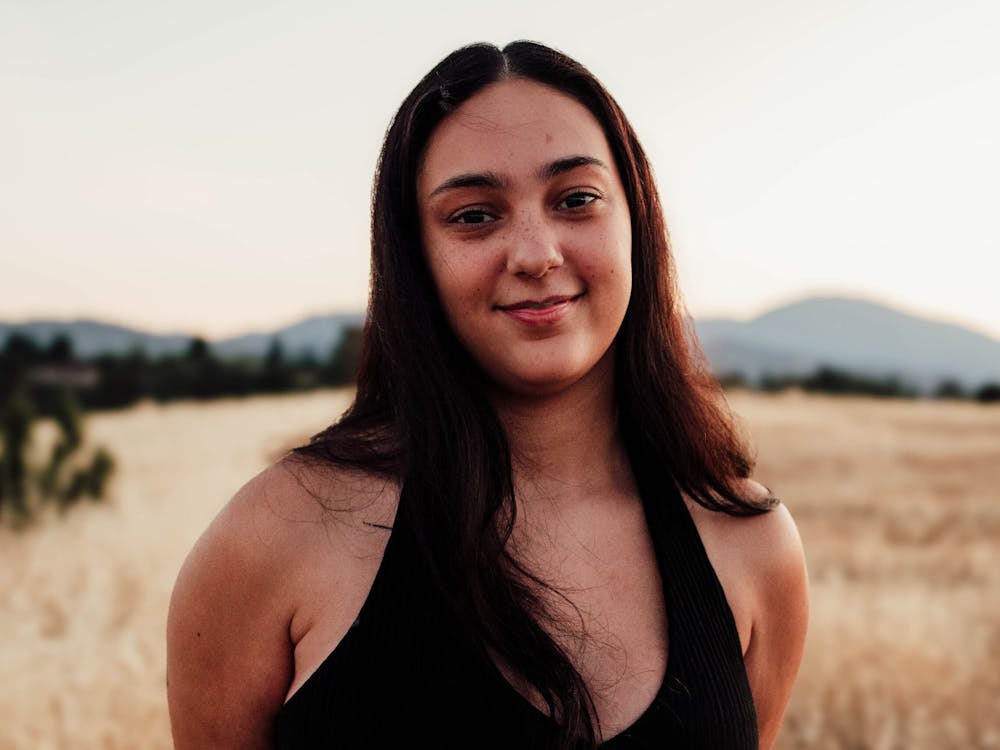Lydia Laythe |
This past weekend I attended the annual Villa Man Auction. Despite the gyrating hips, chiseled abs and bulging biceps, I was not entertained. Despite watching graceful synchronized water ballet and hearing love ballads belted out beautifully, I was not entertained. Despite listening to cheesy jokes and a witty parody of Frozen’s “Let it Go,” I was not entertained.
I was not entertained: I was overwhelmed.
I was not entertained: I was exhausted.
I was not entertained: I was defeated.
I was flooded, swamped, besieged, inundated, plagued and overpowered by white male privilege.
Privilege is a benefit someone receives simply based on their race, gender or sexuality. As a white person, I am endowed with white privilege simply because I am white, and our society is deeply rooted in racial hierarchies and stereotypes.
White male privilege is the ability to put on a “Man Auction,” and not be questioned, demeaned or criticized. White men are the only demographic of people who would ever be allowed to hold a “Man Auction.”
If female students held a “Woman Auction,” there’d be uproar. Complaints of objectification, claims of inappropriate performances, and even allusions to prostitution would surround and overwhelm the event. Women would not be able to go up on stage, strip down to their underwear, dance seductively and get away with it. They’d be labeled promiscuous, inappropriate and attention-seeking. Yet when men do the same thing, we applaud.
We’d never be able to have a “Woman Auction.”
If African American students held a “Black Auction,” there’d be chaos. People would accuse each other of being racist. People would criticize the organizers of being insensitive. White people would feel extremely uncomfortable – and rightly so.
Just the phrase “Black Auction” has an extremely sensitive, incredibly important, but devastatingly gruesome history behind it. If an exclusively African American group of students got up on stage, showed off their physique, and then begged other students to bid on them… there would be undeniable, understandable outrage. Yet when a predominantly white group of men do the same thing, we give it no second thought.
We’d never be able to have a “Black Auction.”
And don’t even get me started on if gay or lesbian students held a “Gay Auction” or if gay students even tried to bid at the Man Auction... I don’t think I even have to explain the hysterics that that would cause.
We’d never be able to have a “Gay Auction.”
If the event wasn’t so popular, if the event wasn’t something UP glorified, if the men participating in the event acknowledged the privilege they had, my thoughts might be different. But the Villa Man Auction is popular. The men who participate in it are glorified and praised.
The men who participate are so clearly oblivious to the privilege they have – and it’s depressing.
Whether it’s white privilege, male privilege, heterosexual privilege - or some combination of the three, it’s clear these men are unaware of the power and privilege they hold over every other demographic of student at this school.
And what’s worse? We encourage it. We, myself included, attend this event. We cheer the men as they dance and sing, oblivious to the underlying messages we are perpetuating.
I know the Villa Hall guys aren’t bad guys. They are kind, well-intentioned young men. And I’m not perfect. I cheered and hooted at the Auction - but I shouldn’t have.
No one is perfect and we all make mistakes. But it’s important that we think critically about the things we do and support. It’s important that we admit when we’re wrong and we try to change problematic behavior.
To the Villans that walk across campus, proud of their performance in the Man Auction: I hope you will reflect on these ideas. I hope you will examine the messages you send through your performance and the inequality you perpetuate by participating in this event.
To all the students that attended the Man Auction, or to the students that never thought twice about it: I hope you will think about these ideas too. I hope you will honestly consider what it means to hold an annual “Man Auction,” and how that might be enforcing and maintaining inequality on our campus.
Raising money for children in Peru is an honorable objective, but at what cost?
Lydia Laythe is a junior social work major and can be reached at laythe16@up.edu.







